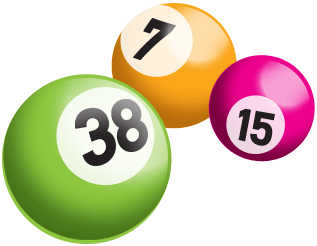Let’s face it - we’ve all imagined winning the lottery at some point, and you may have played once or twice or even weekly to test your luck.
Regardless of how often you play a lottery, you may have heard the term 'rollover' being used from time to time - but what exactly does this mean? To find out more about rollovers and the impact they have on the lottery games you play, keep reading.
What is a rollover?
In a nutshell, a lottery rollover is when no one wins the jackpot, so the money that would have been given to the winner is added to the jackpot of the following game. This can increase the total jackpot prize to an even bigger sum.
However, when you take part in the Age UK Weekly Lottery, there are no rollovers, meaning that every week, one of our players will win our top prize of £2,000. Our weekly lottery gives you the chance of becoming one of 1,000 guaranteed winners every week. You could even be in with a chance of winning up to £25,000 and one of 5,000 cash prizes in our Quarterly Superdraw. For just £1 an entry, you could be in the running to win a life-changing sum, and you’ll also be helping us to support older people most in need across the UK.
How many times can a lottery roll over?
There are many different lottery games, all of which will have different rules on how to play, including how many times the jackpot can roll over. Some lottery games do not have rollovers at all - just like the Age UK Weekly Lottery. For lotteries that do have rollovers, it’s worth noting that each one may differ slightly in terms of how many times this can happen.
For example, the Lotto, which is run by the National Lottery, can only roll over five times. The starting jackpot is rolled over, then it moves onto a double rollover, then a triple rollover, then a quadruple rollover before being classed as ‘must be won’ draw on the fifth rollover. If no one wins on the fifth and final rollover, there’s a ‘rolldown’. This means the jackpot is shared by players matching two or more main numbers.
Meanwhile, for the Euromillions, the jackpot can be rolled over until it reaches its cap value of €220 million, at which point it must stay at that capped value for four draws. When it gets to this point, it must be won in the following draw. If at the next draw there is no winner, the prize is then rolled down to the next winning tier.
Since the Age UK Weekly Lottery has no rollovers, someone is guaranteed to win every single week. This means you have a much greater chance of becoming a winner yourself and hitting the jackpot, making it more worthwhile to buy an entry.
How common are lottery rollovers?
In short, a rollover occurs if no one wins the jackpot, and since your chances of winning one of the major lotteries are so small in the first instance, it is very common for this to happen.
However, it’s also worth pointing out that, even though they may happen regularly, a rollover will not increase your chances of winning the jackpot.
In fact, according to the National Lottery, the odds of winning the Lotto jackpot is one in 45,057,474, while the odds of cashing in the Euromillions jackpot is one in 139,838,160.
Unfortunately, there’s no real secret to boosting your chances of hitting the jackpot. It really is the luck of the draw. Of course, buying more tickets does increase the probability of winning.
What happens to lottery rollover money?
If no one claims a winning lottery ticket, you might be wondering what happens to the jackpot money. As previously mentioned in this article, if a lottery has a rollover, the jackpot plus any ticket sales from the previous draw are added to the value of the top prize. As a result, the jackpot will continue to increase as long as there is a rollover, meaning that there is a much bigger pot of money to win.
Lottery rollovers seem like an exciting prospect, but it’s still important to understand how they work and that they can differ depending on the specific game you are playing.
 Play the Age UK Lottery today!
Play the Age UK Lottery today!
Every Friday you'll be in with a chance of becoming one of our 1,000 guaranteed winners!


